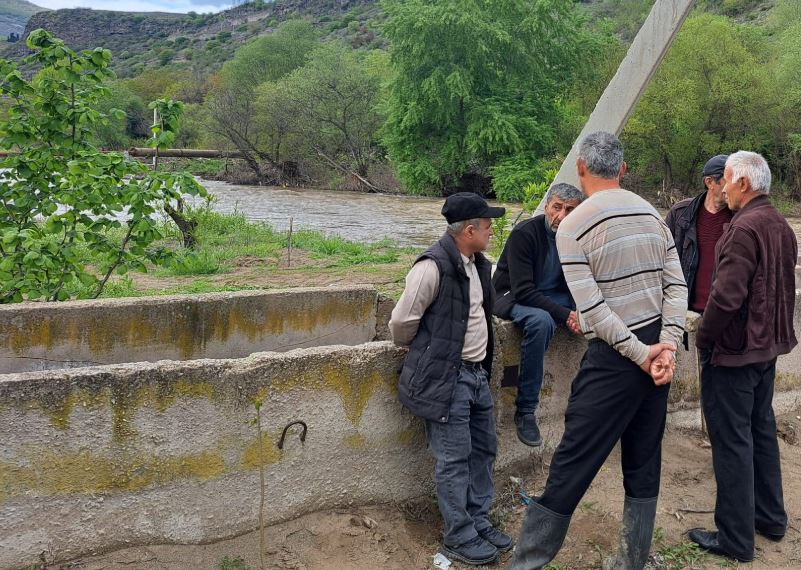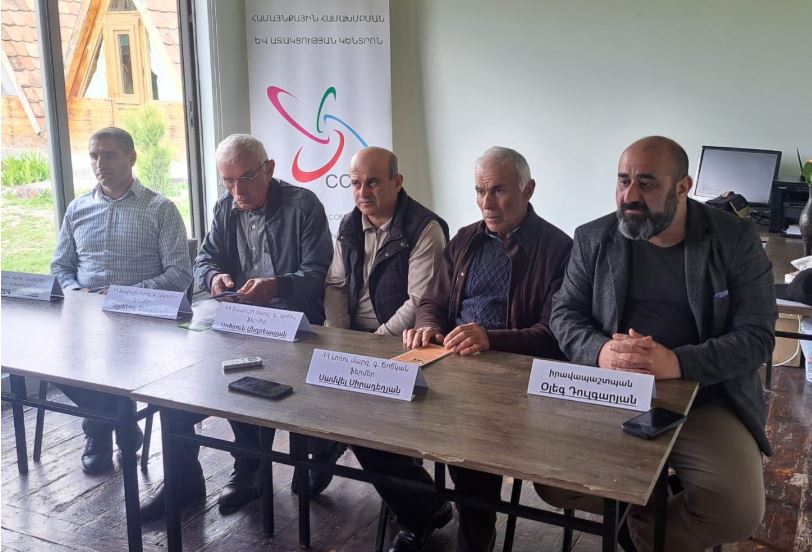By Christopher Crowson
Nearly a year after the Debed River flooded, riverside communities in the Lori and Alaverdi provinces took part in the “Debed – My River” campaign to shed light on their living conditions exacerbated by the river’s pollution.
Organised by the Centre for Community Mobilization and Support NGO, the program aimed to raise awareness on the issues faced by residents who live beside the Debed River.
“The Debed is life for us. Without water, we cannot grow anything, bring in our harvests and live securely”, said Samvel Siradeghyan, a riverside farmer who mainly grows tobacco.
The Debed, one of Armenia’s main rivers, has been subjected to industrial waste pollution for years, hindering local farmers’ ability to irrigate their agricultural lands and damaging their crop harvests.

“In 2023, there was an alert that the river was extremely polluted and many local inhabitants were suffering from it,” stated Oleg Dulgaryan, human rights defender and President of the NGO that organized the campaign.
The situation further deteriorated in May 2024 when Debed flooded, causing significant damage to communities alongside the banks of the river.
Siradeghyan, a farmer, stated that as a result of the flooding, he and others couldn’t water their crops for three months.
Ardzrun Andreasyan, another local farmer, estimated that the impacts of last year’s flooding will continue to be felt for two or three years.
Dulgaryan stated that locals also face numerous difficulties due to the heavy pollution in the Debed River. He said that on a local level, This is having a negative impact on the residents’ health. On a national level, local farmers’ products containing heavy metals are being spread across Armenia. And on an international level, the products have been failing to meet European standards for sale.
This was the first time local residents themselves directly voiced their concerns to the press, which Dulgaryan felt was an important step in bringing these issues to the surface.

Marianna, 16, from Alaverdi, told CivilNet that she decided to attend the campaign because she herself “saw many people who suffered from the flooding, including a loved one.”
“Of course, I’m glad [that journalists are here]. Nobody listens to us,” said Andreasyan, a local farmer.
On both days of the campaign, the journalists went to observe some of the tailings dams in the area, including the Nahatak, Explosives Gorge and Nazik tailings dams, all massive sources of pollution for the Debed River.
With little progress being made in addressing the ecologically damaging practices along the banks of the Debed and the risk of the river flooding not reducing in the foreseeable future, locals and the NGO can only hope that the government develops and implements a comprehensive strategy to protect the Debed River ecosystem and its dependent communities.
The post Pollution and Flooding: Life Near the Debed River appeared first on CIVILNET.